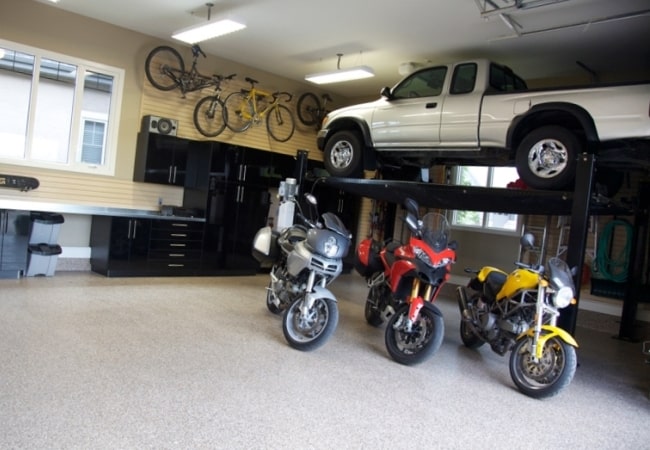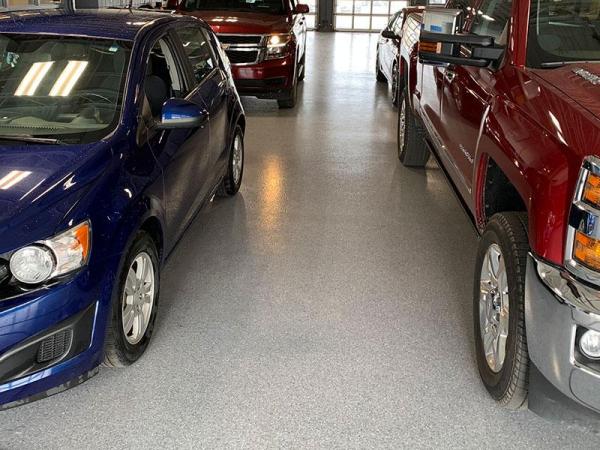Winter weather is well-known for being frightful. It causes accidents and injuries and even structural damage. For all the dangers of the wind and snow, some of winter’s hazards are found in the measures we take to hold them back. Deicers cause damage to driveways and garage floors alike.
Unfortunately, because of their nature, most commercially-available deicers get everywhere. They are scattered for initial distribution, and then they can be tracked across your garage floor by innocuous foot traffic and on tire treads and undercarriages. This means that, no matter what precautions you take on your own driveway, your garage floor is at-risk from any number of deicer-related damage.
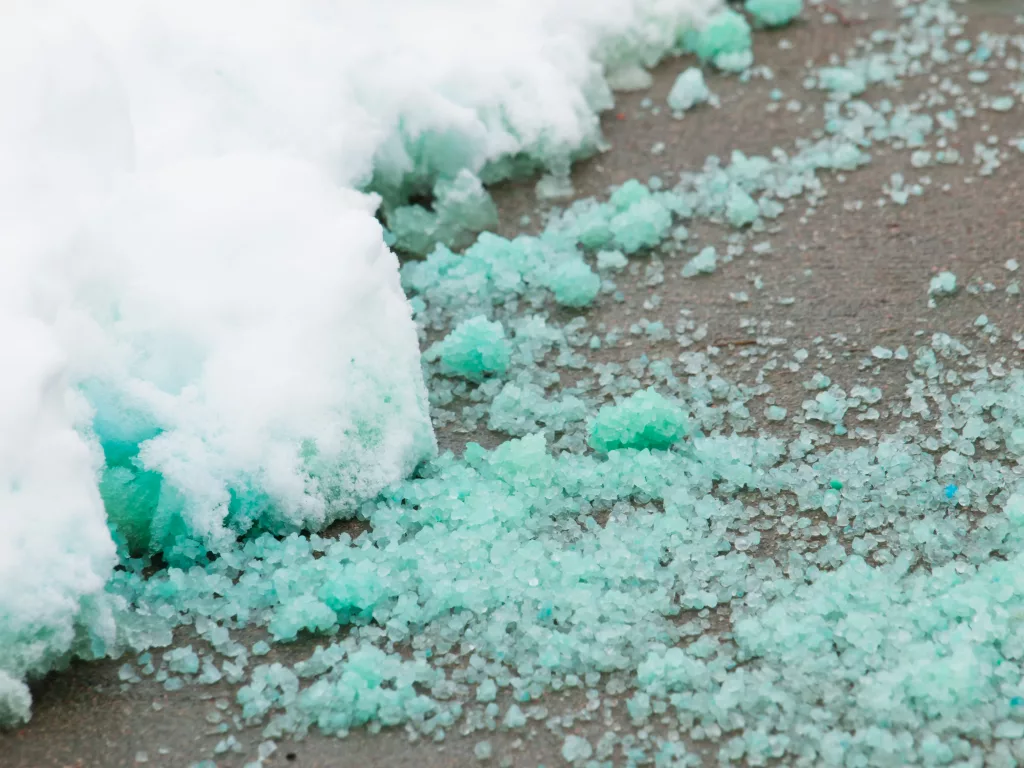
What Is a Deicer?
Deicers are compounds or methods employed to clear off ice from driveways and sidewalks. While they can include ergonomic solutions like heated driveway pads, the most common deicers are chemical compounds that work by lowering the freezing point of the water so surface ice melts.
Ethylene Glycol
For example, many commercial deicers contain ethylene glycol, a compound that is highly toxic if ingested. Ethylene glycol has a freezing point of -12°C, 12 degrees lower than water’s freezing point. However, when combined, the water-ethylene glycol solution has a dramatically lower freezing point, -50°C for a 70:30 mixture of ethylene glycol:water. While ethylene glycol’s toxicity is high, it usually only lasts in the environment for around 10 days.
Salt
Rock salt is the most common deicer on the market, and they are naturally recurring. There are many different kinds of salts, and these deicers cause damage with various levels of corrosiveness. Sodium chloride is a common household find, and unlike its counterpart calcium chloride, it isn’t at all toxic. It is, unfortunately, a catalyst for the formation of rust, so it’s important to clean it off quickly.
Sand
Unlike the others on this list, sand will not melt ice, but it can be helpful for adding traction in its presence. Sand tends to make driveways messy, and it is sure to get everywhere.
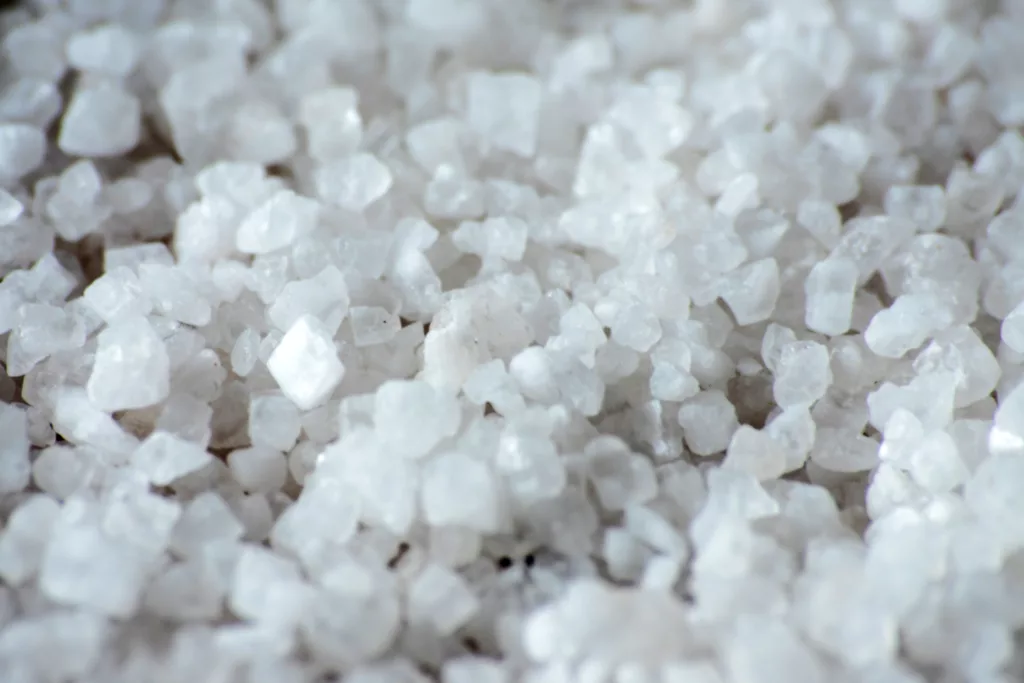
How Do Deicers Cause Damage?
The damage caused by deicers ranges in severity from unattractive staining to structural damage. Rock salt especially leaves behind unsightly stains on everything it touches, from winter boots to cement floors. These dehydrated spots of residue should be cleaned promptly to preserve a garage floor’s unblemished appearance.
Much worse than salty stains, deicers cause damage to the very structure of concrete floors. The chemical structure of salts draws moisture to them, saturating naturally porous concrete underneath them. When that moisture freezes, it expands and creates pressure within the concrete. With each fluctuation in temperature, the internal moisture contracts and expands, and this can cause garage floors to flake or even crack.
Preserving Your Garage Floors
While deicers cause damage ubiquitously, there are several things property owners can do to extend the lifespan of their garage floors. Some of these can be taken care of before the air turns icy.
A Fresh Coat
The market is full of sealants and coatings that do an excellent job of protecting garage floors from the damage caused by deicers. Topical sealers can also be helpful in improving a floor coating’s durability. Some kinds of coatings are more resistant to deicers than others, so you’ll want to do your research before settling on one kind of coating. We offer several kinds of coatings at My Garage Floor Guys and will be happy to help you find the right one. Floors should be coated before the ice sets in.
Keep It Clean
Cleaning a garage floor before stains set in can help extend a fresh-looking appearance. To clean cement, we recommend vinegar or a bit of dish soap in a gallon of water. Rinse well and use a press or wet-vac to remove excess water.
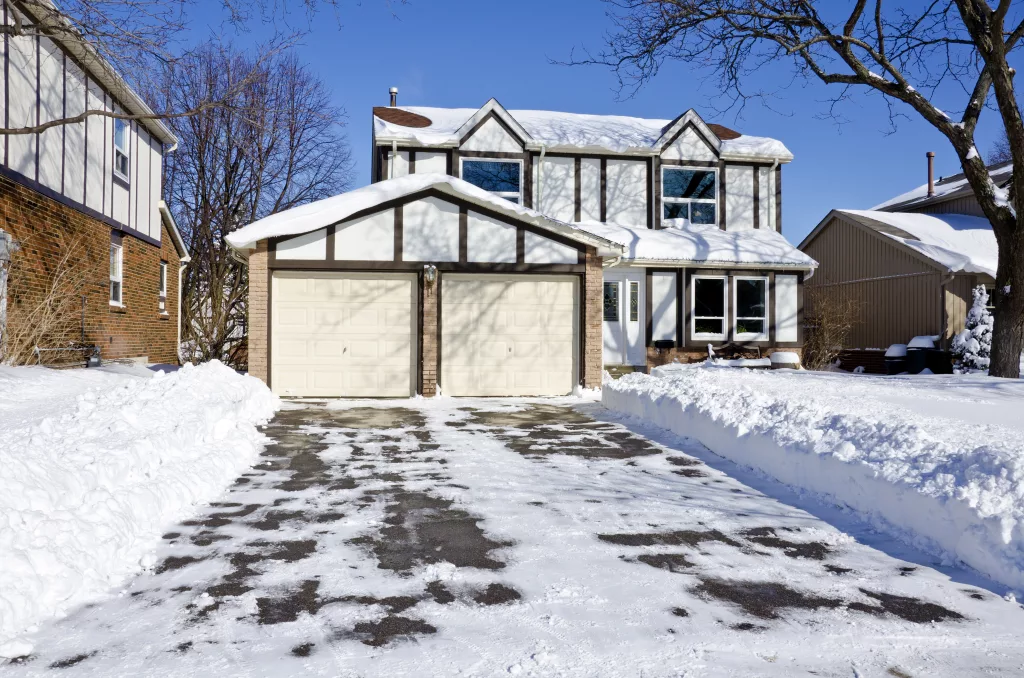
Ready Repairs
When you notice flaking, chipping, or cracking in your cement, there are steps you can take to halt the damage in its tracks. Cement patches are commercially available, though they don’t have the clean finish that polymer-modified cement does. Other compounds like poly-urea, epoxy, or poly-urethane-based crack filler can repair damage. Avoid water- or latex-based fillers because they tend to shrink and re-expose the crack.
Cover Up
Mats are a simple and inexpensive method of keeping deicers off of your garage floor. While they are not fool-proof, they knock off most of the damage.
Hot Water
While commercial deicers cause damage, hot water doesn’t pose the same threat. Sprinkling or spraying hot water on icy driveways can be tedious, but it is a natural way to remove ice without corroding the concrete. It is up to property owners to be mindful of the chemicals and methods you use to clear off their driveways.



